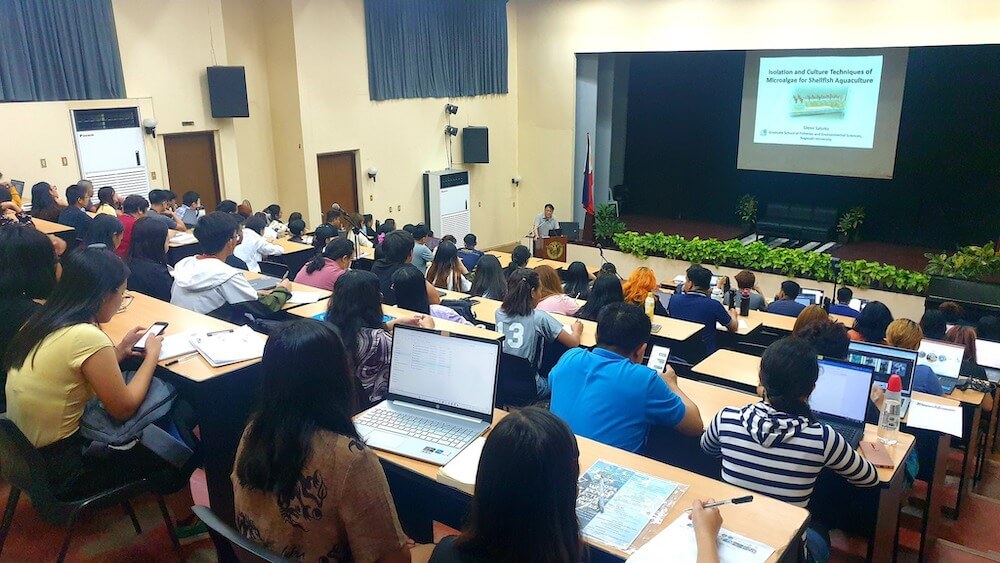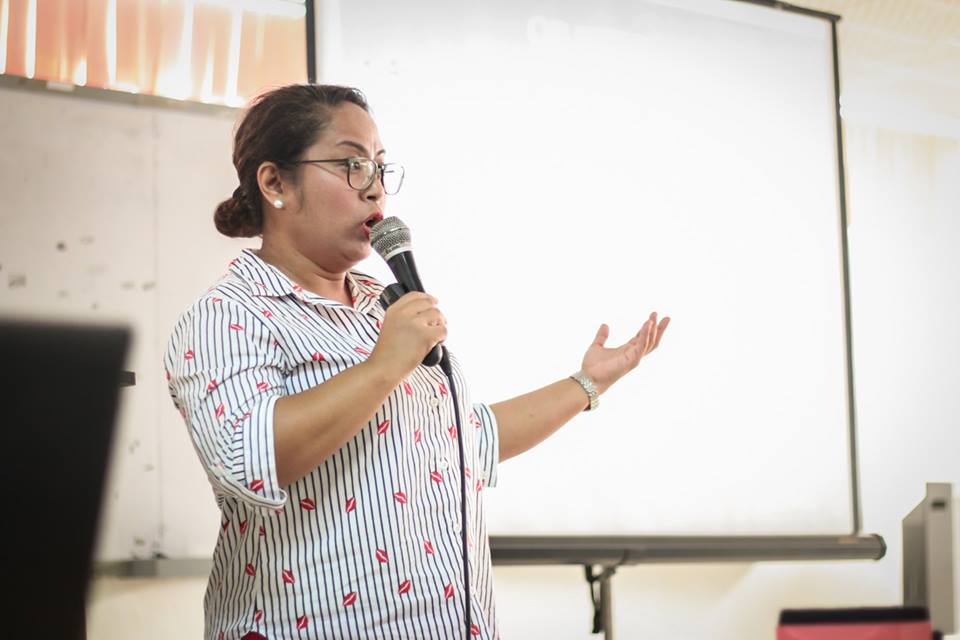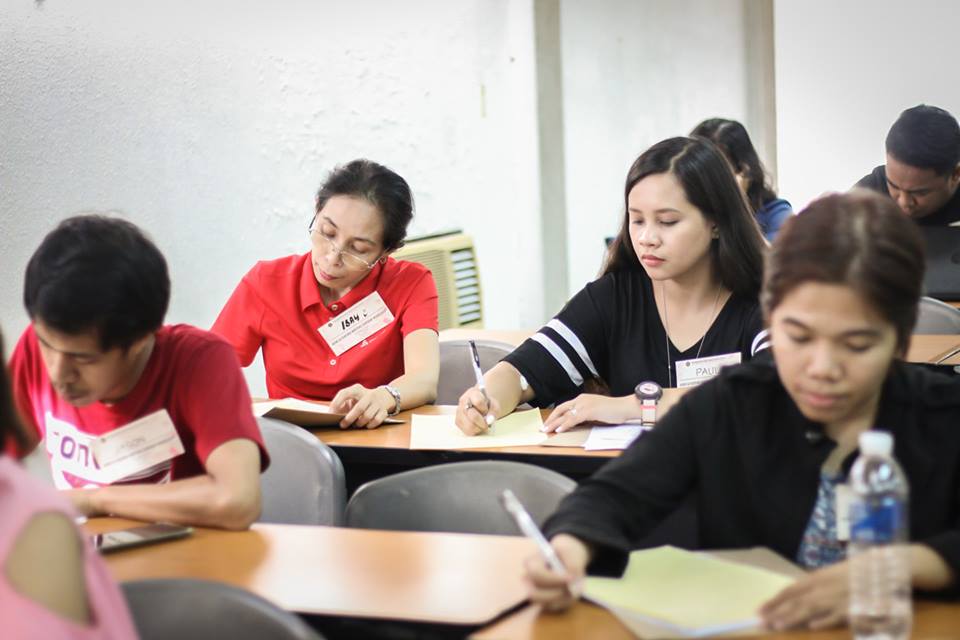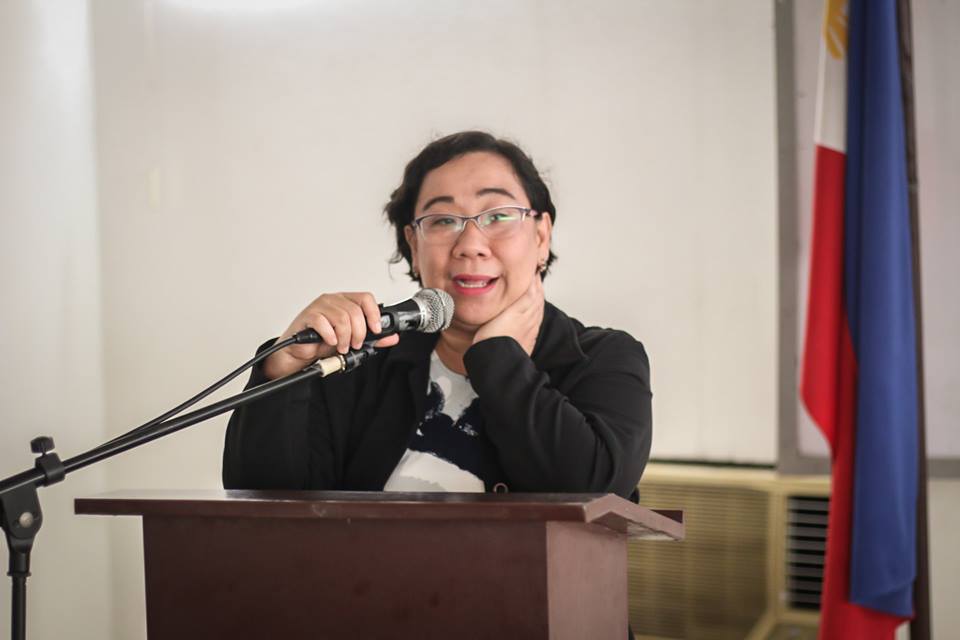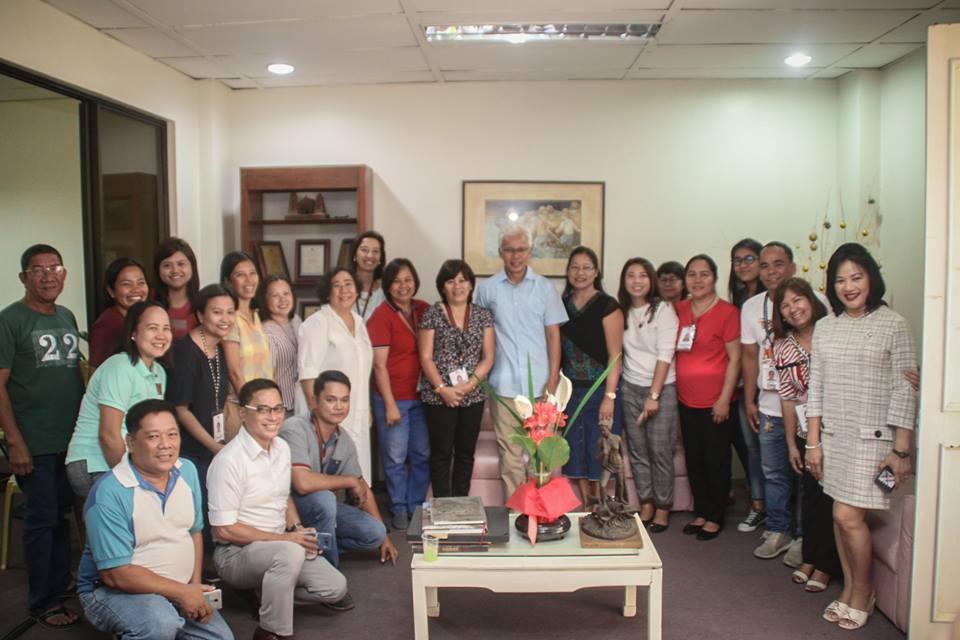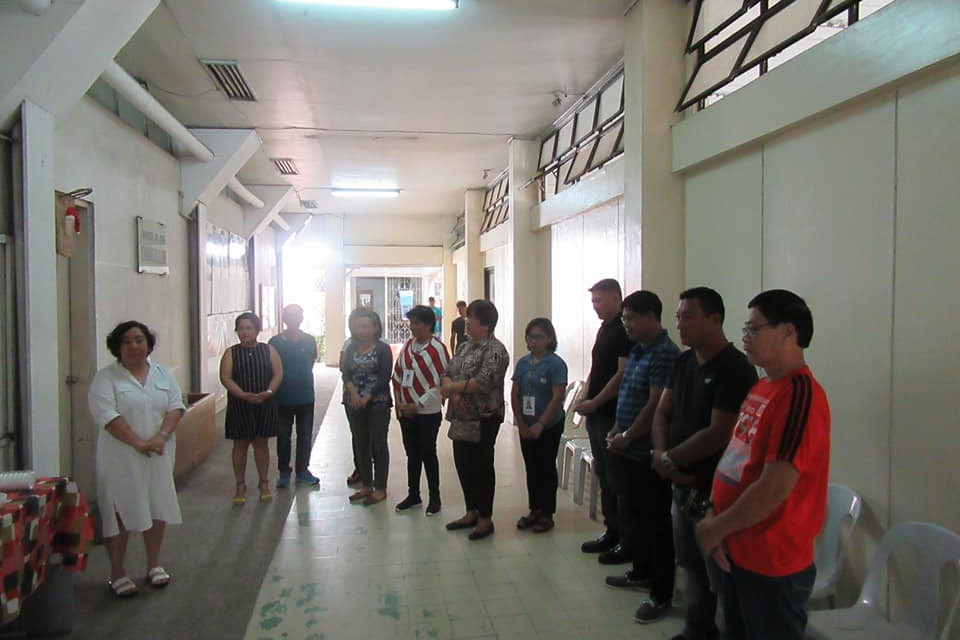The University of the Philippines Visayas College of Fisheries and Ocean Sciences (UPV-CFOS), through the Institute of Aquaculture, hosted the World Expert Lecture Series (WELS) that featured Prof. Glenn Satuito, PhD from the Graduate School of Fisheries and Environmental Sciences, Nagasaki University, Japan on February 19-20, 2024.
Held in person at the AV Hall, CFOS, UPV Miagao campus and online via Zoom and Facebook Live, the two-day lecture series focused on the sustainable culture of marine invertebrates with emphasis on shellfish aquaculture.
The WELS was attended by more than 250 CFOS faculty members, staff, and students, as well as participants from outside the University, to broaden their understanding of bivalve culture and serve as a guide to strengthen the CFOS's teaching, research, and public service activities.
In his welcome remarks, CFOS dean Prof. Harold M. Monteclaro, PhD stated that the lecture series, which was the College's first major activity of the year, could provide attendees, particularly students, with the opportunity to listen and learn from specialists overseas besides their instructors.
Chancellor Clement C. Camposano, in his opening message, expressed his hope that this event would motivate and inspire both students and faculty members. He discussed sustainability that requires a great deal of science to attain.
Prof. Satuito, a bivalve aquaculture expert, gave lectures on the following topics: settlement behavior of benthic marine invertebrates; the status and challenges of the oyster aquaculture industry in Isahaya Bay, Nagasaki, Japan; and isolation and culture techniques of microalgae for shellfish aquaculture.
Prof. Satuito has taken an active role in several organizations, including the Sessile Organisms Society of Japan, the Japanese Society for Aquaculture Science, and the World Oyster Society. He was appointed as a JICA short-term expert for a Shellfish Aquaculture Development Project in El Salvador, among many other achievements in the field.
In his discussion of benthic marine organism, Satuito explained the life cycle of benthic marine invertebrates, the factors influencing settlement, and the size of the benthic organism population. In addition, he talked about the significance of favorable settlement locations that would ensure post-settlement survival and expansion, and the role of microbial biofilms as food for juvenile sea urchins and abalones as well as an inducer of larval settlement.
Prof. Satuito's presentation on shellfish farming focused on the production and sale of significant bivalves such as oysters from Isahaya Bay. He discussed the approach utilized by oyster farmers in Japan, including the challenges such as the need to source local seeds, high mortality during summer, and climate change.
In the third topic, Prof. Satuito discussed the processes in microalgae culture, from seed collecting to harvest, that are necessary for growing bivalves.
According to him, sustaining algal culture is crucial for the successful aquaculture of bivalves and other marine invertebrates.
He explained that different invertebrates have varied nutritional needs. "To have a successful bivalve culture, you need to have suitable microalga and this must be cultivable with high nutritional value and sufficient for the invertebrate or bivalve species you want to culture," he added.
Assoc. Prof. Victor Marco Emmanuel N. Ferriols, PhD, OIC director of the Institute of Aquaculture, CFOS, also emphasized the event's relevance in his closing remarks. “Opportunity such as this is very important because it gives us fresh perspectives on how things are done in other countries especially on bivalve aquaculture.”
He underscored the insightful discussions during the open forum, when more meaningful and effective issues were raised "to answer the needs of society.”
Meanwhile, Satuito had an exploratory meeting with small group of CFOS faculty members and researchers, namely Dr. Mary Jane Apines-Amar, Asst. Prof. Dr. Mary Grace C. Sedanza, Ms. Rose T. Mueda, Ms. Soledad S. Garibay, Dr. Lily Anne Piñosa, as well as representatives from the Bureau of Fisheries and Aquatic Resources (BFAR) Regional Office VI to identify potential areas for collaborations.
He also toured the CFOS and UPV facilities particularly the mussel hatchery of Dr. Amar, microalgae paste project of Ms. Garibay, blood cockle research project of Dr. Ferriols, the seaweed, planktoniche, and other laboratories of CFOS. He also explored the Regional Research Center and the Philippine Genome Center-Visayas.
An extension of the WELS event on February 23, 2024 was also made possible at the Institute of Biology Auditorium, UP Diliman with Prof. Dr. Philip Ian Padilla, Assistant to the Executive Director of PGC UP System, as co-host. Prof. Satuito also conducted the same lectures for the UP MSI, Institute of Biology, and Institute of Chemistry faculty, REPS students and staff, as well as some oyster growers.
The hybrid activity was made possible by a grant awarded to Dr. Mary Grace C. Sedanza under the WELS Program of the UP Office of International Linkages.

